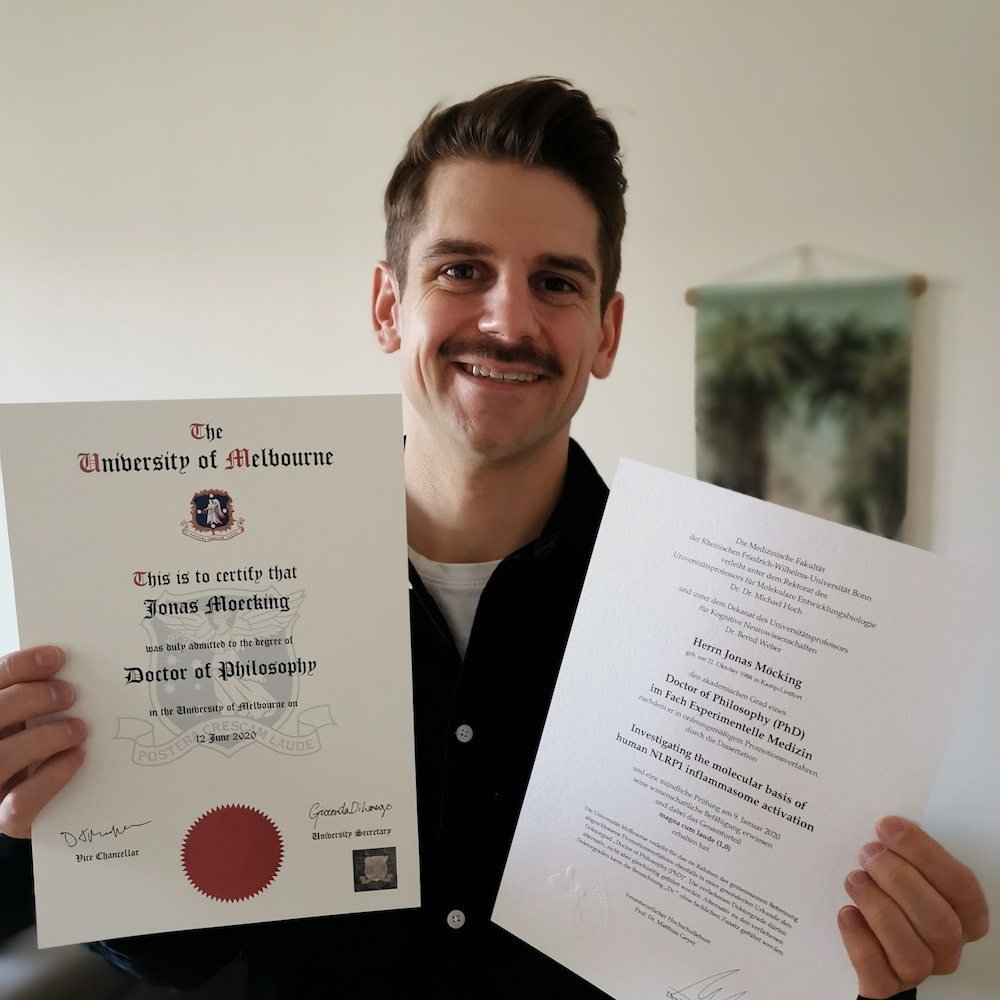After concluding my Master studies in Biotechnology, I was particularly looking for opportunities to gain experience abroad during my PhD. Since I had already spent one year in Australia during my studies, I had a personal connection to this exciting continent already. Therefore, the Bonn & Melbourne program seemed like the perfect combination for me. Luckily, I got the chance to be a part of it. My main location was Bonn, where I spent the first two years of my PhD. The first couple of months I mainly spend on adapting to the new environment, learning new techniques and developing an understanding for my project. It mainly focussed on a certain part of the human immune system, called the inflammasome. These are large protein complexes, which are described to trigger inflammation in response to pathogenic or stress signals. My particular interest was to understand the mechanism of activation of the NLRP1 inflammasome. During the first two years at the Institute of Structural Biology in Bonn, I looked into the structural basis of how the NLRP1 inflammasome takes action.
With time going by fast, it was quite a challenge getting everything done before moving over to Australia. There I spent the third year of my PhD at the Inflammation Division of the Walter and Eliza Hall Institute in Melbourne. The scientific interest of my project shifted a bit more towards functional aspects. Additionally, I was also able to continue my structural work in collaboration with other divisions at the Institute. Although changing labs in the middle of your PhD does not particularly make things easier, the project worked out well in the end. There was certainly a scientific synergy in my project that was beneficial not only to me but also to my supervisors. Combining structural and functional data is a valuable skill that I probably would not have acquired in such depth, if I would have done my PhD in just one of the two labs.
Apart from the scientific aspects, moving into a new environment and adapting to such takes time and also some courage. But there are lots of things about this exchange that I experienced as very positive. You get to develop your personal skills as you learn to work in different teams, communicate your research project in different settings and to more generally experience different scientific environments. Another very obvious plus is that you get to spend an entire year in Australia. Of course the main priority is to make sure you make progress with your project. But there is still time to explore the wonderful national parks, beaches and islands of Australia. You can also fully indulge into the cultural life in Melbourne, which has a lot to offer. There is lots of live music, you can watch and play sports (AFL or better “footy”, F1, Tennis, Soccer), there are arts and history museums, parks, festivals and more. The institutes themselves have student associations that regularly organize events like scientific talks or a monthly get-together with drinks and pizza. Last but not least you get to build a network of people of scientific and non-scientific background at two different ends of the world. For me personally, I can say that I met many people along the way, be it from inside or outside the program, who became good friends and with whom I shared fantastic experiences.


Jonas Möcking
“Investigating the molecular basis of human NLRP1 inflammasome activation”